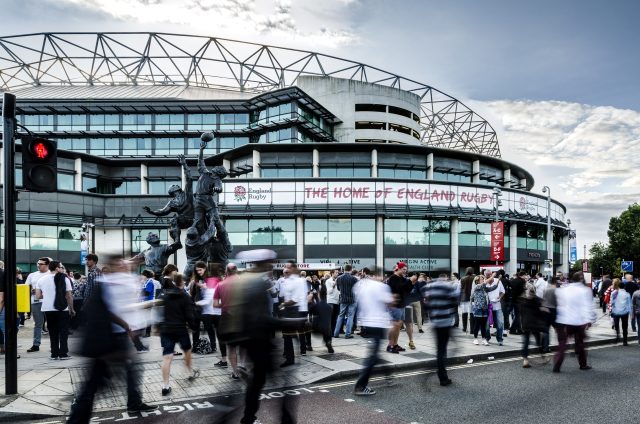This website uses cookies so that we can provide you with the best user experience possible. Cookie information is stored in your browser and performs functions such as recognising you when you return to our website and helping our team to understand which sections of the website you find most interesting and useful.
Ex-England rugby coach calls for crackdown on stadium drinking
Sir Clive Woodward, who coached the England men’s team to victory in the 2003 Rugby World Cup, argued that a drinking culture among supporters has turned Twickenham into “the world’s biggest pub”.

Writing for the Mail Online, Woodward has called for the Rugby Football Union (RFU) to “do something about the huge number of supporters who spend most of the match getting up and down to either go to the bar to buy more beers or to go to the toilet.”
Spurred on by what he saw while working as an ITV pundit during England’s Calcutta Cup loss to Scotland on Saturday, Woodward wrote: “My friends and family were at the match. They were surrounded by people who were more concerned with drinking than the rugby. They were up and down throughout the game. Each time they returned, they were carrying eight pints each. There was no trouble. These were decent, polite guys who apologised for causing a disturbance each time. But it was still incredibly annoying for my friends and family and they had beer spilt on them from behind.”
“I’m not arguing for no drinking at all. I just want to see some understanding of this issue and a way to moderate it. The RFU need to look at it before trouble breaks out, especially when some are paying nearly £200 for a ticket. When we are experiencing a cost of living crisis, you can’t get away from the fact that it is very expensive to go and watch England play at Twickenham,” he added.
A pint of Guinness, served in a plastic cup, costs £7 at the stadium.
Other rugby bodies have already clamped down on match day drinking. Since last year, the Welsh Rugby Union (WRU) has shut bars at the Principality Stadium at half-time in order to curb alcohol-related disorder.
db reached out to the RFU to ask about whether it might implement a similar policy and was sent the following from a spokesperson: “We know the full match day experience is very important to fans, which is why we continue to evolve the wider Twickenham event day experiences including music and entertainment before, during and after the game. All revenues generated by international fixtures get re-invested to support community and professional rugby which is why we work hard to ensure we maintain such high demand for tickets. Given the size of Twickenham Stadium, and limited time between breaks in play, it would not be practical or safe to operate a no entry/exit from seats policy during a game. We carefully monitor the sale of alcohol in other venues and the impact of zoning and bar closures. This insight demonstrates bar closures can lead to other behaviours such as extensive pre-drinking prior to kick-off and at half time and late arrivals causing disruption to the start of a game as well as crowding on departure and dissatisfaction from those in alcohol free zones they weren’t expecting.”
“To understand the views of fans we conduct surveys after each game about their experience and this insight is used to inform all future stadium developments and experiences. We will also continue to work with our partners to promote responsible drinking, we serve low-alcohol and alcohol-free drinks throughout the venue, and provide a confidential helpline to anyone requiring any assistance in the stadium,” the statement concluded.
For rugby fans who would prefer to drink outside of the stadium, here is db‘s roundup of the six best London pubs for the Six Nations.

